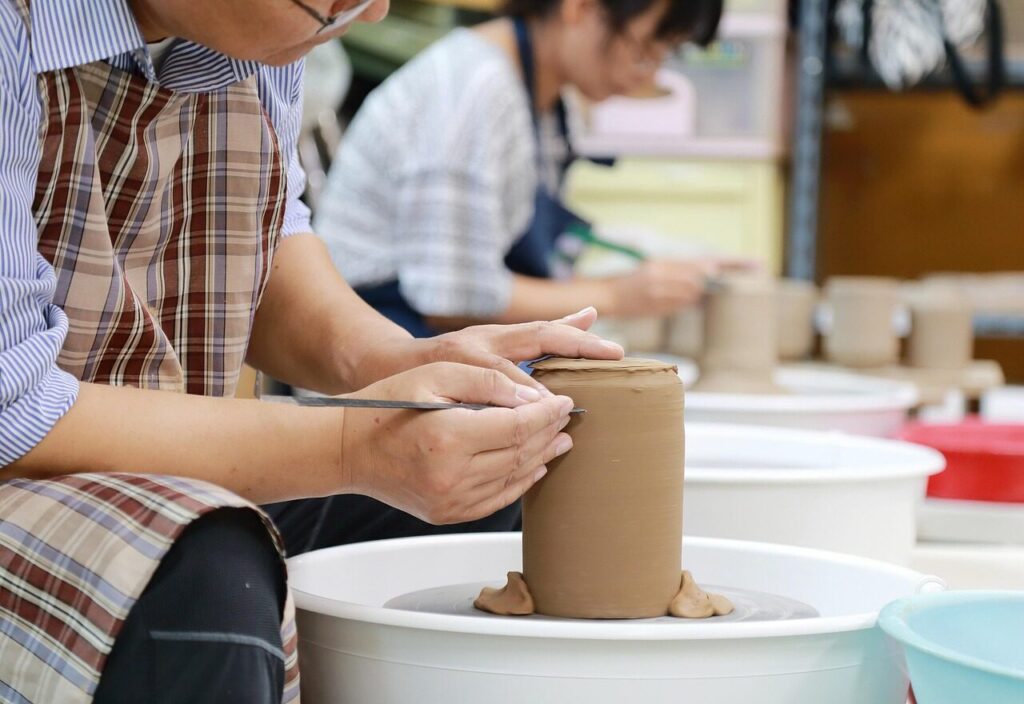Retirement marks a rich new chapter of life, one with fewer obligations and more time to explore what truly brings joy. Whether you’re stepping away from a long career, adjusting to a new routine, or simply craving fresh experiences, hobbies can bring fulfillment, community, creativity, and health benefits. Choosing the right pastime can help you stay mentally sharp, physically active, socially connected, or peacefully introspective. The key is discovering what resonates with you. Some retirees lean toward learning new languages, musical instruments, or arts, while others favor the outdoors, volunteering, or engaging in physical hobbies like gardening or dancing.
1. Gardening

Tending a garden can be deeply rewarding: nurturing plants from seed, watching flowers bloom, or produce ripen gives a visible sense of accomplishment. It offers both light physical exercise and opportunities for creativity, choosing what to plant, how to arrange beds or containers, even experimenting with color or texture. For many retirees, gardening also provides calm, a slower pace, and time to connect with nature. Plus, if you grow herbs, vegetables, or fruit, there’s the bonus of fresh produce, which is satisfying in its own way. Even if space is limited, container gardening or vertical gardens can work.
2. Learning a Musical Instrument

Learning to play a musical instrument can be especially fulfilling in retirement, offering challenges that engage the mind and ears while providing a new form of self-expression. Whether it’s guitar, piano, ukulele, violin, or something less common, each instrument comes with its own hurdles, such as reading music, mastering techniques, and building coordination. Patience often brings beautiful rewards: you might play pieces for yourself, for friends, or in community groups and ensembles. Music also fosters emotional well-being, reduces stress, and lifts mood. Even simple practice routines of just 15 to 20 minutes a day can lead to noticeable progress over time.
3. Painting, Drawing, or Other Visual Arts

Visual arts sketching, painting with watercolor, acrylic, or oil, drawing, or even digital art, offer freedom to create and to express what words sometimes can’t. It’s a hobby that encourages seeing the world closely: noticing light, color, shadow, texture, and line. You get to experiment, make mistakes, learn new techniques, and grow visually. Art classes, whether in person or online, can help with structure and skill, but much joy comes from informal practice. You could sketch scenes outdoors, paint portraits or landscapes, or try something abstract. For many, visual art becomes meditative and calming.
4. Writing and Journaling

Writing opens many paths: journaling personal experiences, keeping memories alive through memoir, writing poetry, short stories, or even blogging. It’s a hobby that flexes both creativity and reflection. Journaling helps clarify thoughts, mark daily gratitude, or process transitions in life. If you enjoy storytelling, fiction writing expands your imagination, while non-fiction allows you to share what you know, travel stories, family history, or life lessons. Writing can be deeply personal or shared with others, depending on your comfort level. Over time, you’ll see growth in your voice and perhaps even surprise yourself with how much you’ve written.
5. Learning a New Language

Learning another language is one of those hobbies that keeps the mind sharp, opens doors to new cultures, and expands social possibilities. Even just phrases and basic conversational skills can enrich travel, connect with friends from other backgrounds, or give access to books, films, and music in new languages. There are many resources apps, online classes, and language exchange partners that make it possible to learn at your own pace. The process challenges memory, listening, and pronunciation while offering the joy of achievement when you finally hold a conversation or read in your chosen language.
6. Dancing

Dance brings together physical activity, music, social interaction, and expression. Whether it’s ballroom, salsa, line dancing, folk dances, or even swing, it’s a fun way to stay fit and flexible. Dancing helps with balance, coordination, stamina, and mood. Classes often bring people together, creating opportunities to meet friends and share experiences. It adapts well to different energy levels, allowing you to choose between gentle movement and more vigorous styles. You can join social dance nights, take lessons, or simply dance at home. The rhythm, movement, and music combine to make this hobby uplifting and enjoyable.
7. Hiking, Walking, or Nature Trails

Exploring nature through walking in parks, hiking trails, or strolling near lakes or beaches can be deeply restorative. It’s an accessible hobby that can start with short walks and gradually progress to longer, more adventurous routes. The fresh air, scenic beauty, and changing seasons bring constant variety. Physical benefits include better cardiovascular health, improved stamina, and flexibility. Mentally, walking reduces stress and lifts mood. Being in nature often encourages mindfulness, observing birds, plants, and landscapes in quiet reflection. You can enjoy this hobby solo for peace or in groups for shared exploration.
8. Photography

Photography invites you to look more carefully at your surroundings and capture moments with meaning. Whether using a smartphone or a professional camera, there’s plenty to learn about lighting, composition, and editing. You might focus on nature, portraits, travel scenes, or candid moments. Photography pairs beautifully with other hobbies like hiking or gardening. Reviewing your photos helps you see what inspires you, while editing teaches patience and attention to detail. It’s also a wonderful way to preserve family memories, share experiences with loved ones, or showcase your perspective online or in a community group.
9. Cooking, Baking, or Exploring New Cuisines

Cooking and baking provide endless opportunities to create, experiment, and share. You might explore international cuisines, refine family recipes, or try healthier variations of meals you love. Baking requires precision but rewards with delicious bread, cakes, and pastries. Cooking is practical yet artistic, letting you play with flavor, texture, and presentation. This hobby also strengthens connections; meals bring family and friends together. Retirement provides the time to experiment, plan menus, and even grow ingredients in your own garden. Whether it’s a new dish every week or perfecting one classic recipe, this hobby offers both satisfaction and joy.
10. Volunteering

Volunteering is a meaningful way to spend time by giving back to your community. Whether you support schools, libraries, animal shelters, food programs, or environmental groups, there are always organizations in need of help. This hobby builds purpose, keeps you active, and creates opportunities for friendships. It’s also flexible; you can commit a few hours weekly or monthly, depending on your schedule. Volunteering reminds you of your ability to make a difference and can be deeply rewarding. Many retirees find that it strengthens their sense of identity and leaves a positive legacy in the lives they touch.
11. Traveling or Local Explorations

Travel doesn’t always require long flights or distant destinations. Exploring nearby towns, parks, cultural sites, or even hidden gems in your own city can be just as fulfilling. Retirement offers the freedom to travel without work constraints, allowing for more flexible planning. Each trip, whether a weekend getaway or a long journey, brings stories, memories, and broadened perspectives. Travel can also connect to other hobbies such as photography, food exploration, or hiking. The joy of discovery, meeting new people, and stepping into new surroundings brings excitement at any age.
12. Puzzle Solving and Brain Games

Puzzles and brain games keep the mind sharp and engaged. Crosswords, Sudoku, logic puzzles, and word searches all stimulate mental activity. Board games and trivia also add a social element, letting you play with family or friends. Digital apps now offer countless ways to challenge your brain, compete with others, or practice daily. This hobby helps maintain memory, problem-solving skills, and creativity. Completing a tricky puzzle brings satisfaction and boosts confidence. Best of all, you can enjoy these activities at your own pace, whether for a few minutes daily or during long, relaxing afternoons.
13. Crafts and DIY Projects

Crafting and do-it-yourself projects bring a wonderful mix of creativity and practicality. Knitting, sewing, woodworking, pottery, and jewelry making are just some of the options. These activities allow you to create personal items for yourself, gifts for loved ones, or even useful home projects. The process itself is often calming, offering focus and relaxation. Many retirees enjoy joining craft circles or workshops, which provide both skill-sharing and social interaction. The satisfaction of producing something tangible and meaningful, whether it’s a handmade scarf, a carved wooden piece, or a piece of pottery, makes this hobby especially fulfilling.
14. Fitness and Wellness Activities

Fitness hobbies such as yoga, tai chi, swimming, or group aerobics classes help keep the body strong, flexible, and balanced. These activities also support mental wellness by lowering stress and improving mood. Wellness can also include meditation, stretching, and mindfulness practices that bring inner peace. The beauty of fitness hobbies is that they can be adapted to your energy levels, with gentle routines for relaxation or more active workouts for stamina. Consistency, rather than intensity, is key. Retirement provides time to focus on self-care, and prioritizing wellness makes everyday life more enjoyable and energized.
15. Learning New Skills or Courses

Retirement is the perfect stage to become a lifelong learner. You can enroll in courses on history, literature, technology, or art, either online or through local community programs. Picking up new skills, whether digital literacy, photography, cooking, or financial planning, keeps the mind active and curious. Learning stimulates creativity and can lead to exciting new hobbies. It also creates opportunities to meet others who share similar interests. Unlike learning during school or career, this is entirely for personal fulfillment. Expanding knowledge or skills brings confidence and opens new doors, proving that growth has no age limit.
Comments